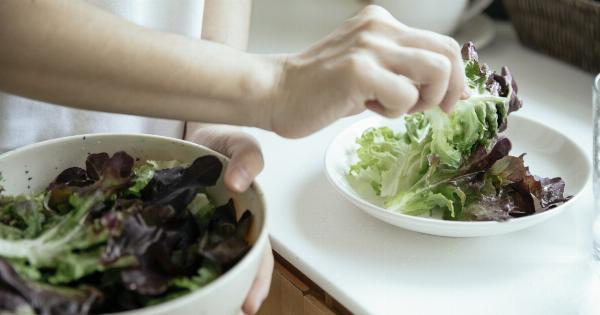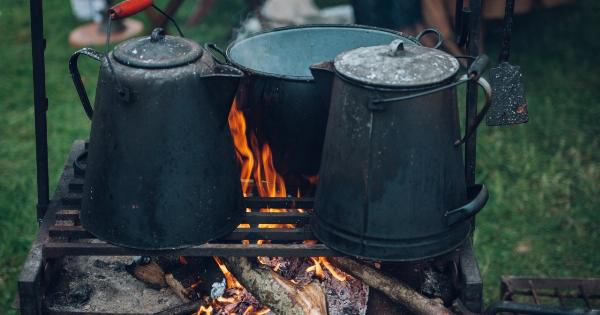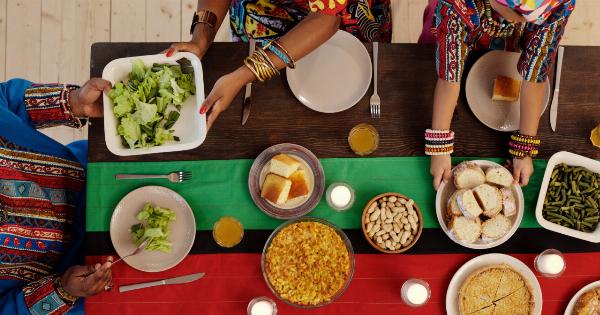Gout is a type of arthritis that occurs when there is an excess buildup of uric acid in the body, leading to the formation of urate crystals in the joints.
This condition causes severe pain, inflammation, and swelling in the affected joints, most commonly in the big toe. While there are several factors that contribute to the development of gout, including genetics and certain medical conditions, poor dietary choices play a significant role in triggering gout attacks and worsening the symptoms.
In this article, we will explore the relationship between gout and poor dietary choices and discuss the foods that should be avoided or limited to manage and prevent gout.
1. Purine-Rich Foods
Purines are naturally occurring compounds found in various foods and drinks. When consumed, purines break down into uric acid in the body.
For individuals with gout, excessive purine intake can lead to an accumulation of uric acid and subsequent gout attacks. Therefore, it is crucial to limit the consumption of purine-rich foods. Some examples of purine-rich foods include organ meats like liver and kidneys, seafood such as anchovies, sardines, and mussels, as well as red meat and game meats.
2. Alcohol
Alcohol, especially beer, is well-known for triggering gout attacks. It not only increases the production of uric acid but also impairs the body’s ability to excrete it.
Beer contains high levels of purines derived from brewer’s yeast, intensifying the risk of gout. Additionally, alcohol can cause dehydration, a known gout trigger. Hence, limiting or avoiding alcohol consumption is crucial for those with gout.
3. Sugar-Sweetened Beverages
Sugar-sweetened beverages, such as sodas and fruit juices with added sugars, have been linked to an increased risk of gout. These drinks are high in fructose, a type of sugar that can elevate uric acid levels in the body.
Research suggests that excessive fructose intake can raise uric acid levels by stimulating its production and reducing its excretion. Therefore, it is advisable to opt for healthier alternatives like water, herbal tea, or unsweetened drinks.
4. High-Fat and Processed Foods
High-fat and processed foods not only contribute to obesity and other health issues but can also worsen gout symptoms.
These foods are typically high in saturated fats, trans fats, and refined carbohydrates, all of which have been linked to increased inflammation in the body. Inflammation plays a crucial role in gout attacks, often leading to severe joint pain. It is essential to avoid or limit the consumption of fast foods, fried foods, processed snacks, and high-fat desserts.
5. Yeast and Yeast Extracts
Yeast and yeast extracts, commonly found in baked goods, spreads, and condiments, contain high levels of purines that can trigger gout attacks. The yeast used for baking or fermenting processes can contribute to elevated uric acid levels.
Therefore, it is advisable to read product labels carefully and choose yeast-free alternatives whenever possible.
6. High-Fructose Fruits
While fruits are generally considered healthy, some fruits have higher fructose content than others, which can be problematic for individuals with gout.
Fruits such as cherries, oranges, pineapples, and grapes contain moderate to high levels of fructose. It is crucial to consume these fruits in moderation and balance them with low-fructose fruits, including strawberries, blueberries, and apples.
7. Certain Vegetables
Although vegetables are an essential part of a balanced diet, a few vegetables are known to have higher purine content and may trigger gout symptoms. These vegetables include spinach, cauliflower, mushrooms, and asparagus.
However, it’s important not to completely eliminate vegetables from the diet as they provide several other health benefits. Instead, moderation and balance are key.
8. Salt
Excessive salt intake can lead to fluid retention and may increase the risk of gout attacks. High-sodium foods, such as processed snacks, canned soups, and fast foods, should be avoided.
Instead, opting for low-sodium alternatives and flavoring meals with herbs and spices can help manage gout and overall health.
9. Excessive Protein Intake
While protein is an essential macronutrient, consuming excessive amounts can potentially worsen gout symptoms. High-protein diets, particularly those rich in animal proteins, are associated with increased uric acid production.
Therefore, it is advisable to maintain a balanced protein intake and incorporate plant-based protein sources like legumes, tofu, and nuts into the diet.
10. Fluids
Adequate hydration is crucial for individuals with gout as it helps in flushing out the excess uric acid from the body. Drinking enough water and other fluids can help prevent the buildup of urate crystals in the joints.
Additionally, staying hydrated reduces the risk of kidney stone formation, a common complication of gout. Therefore, it is essential to make water the primary beverage choice and consume at least 8-10 cups of fluid per day.
Conclusion
Poor dietary choices play a significant role in the development and progression of gout. Foods and drinks high in purines, fructose, saturated fats, and refined carbohydrates can trigger gout attacks and exacerbate symptoms.
By making informed dietary choices and limiting the consumption of these triggering foods, individuals with gout can effectively manage their condition and reduce the frequency and severity of gout attacks.































